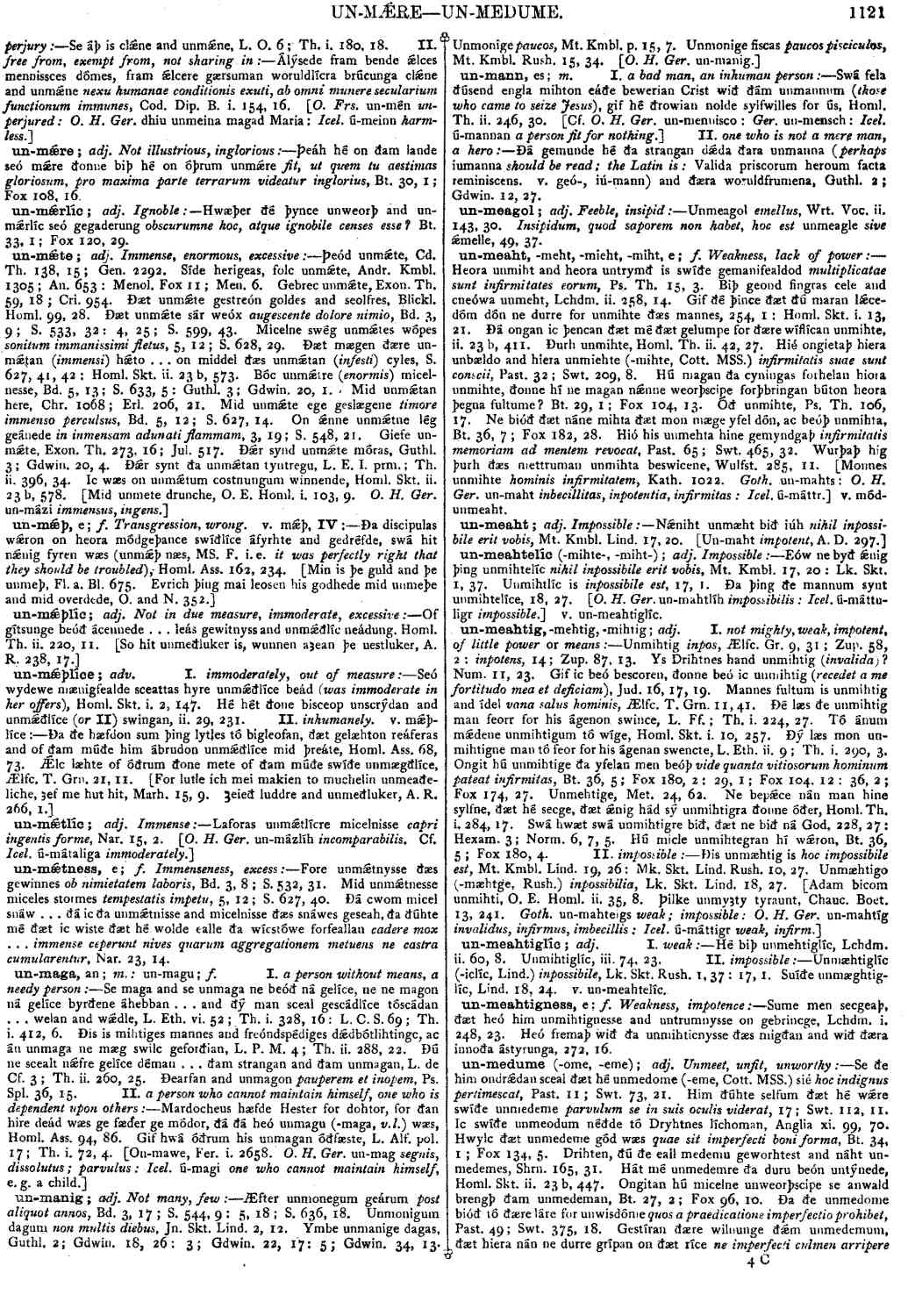un-maga
- noun [ masculinefeminine ]
-
Se maga and se unmaga ne beóð ná gelíce, ne ne magon ná gelíce byrðene áhebban ... and ðý man sceal gescádlíce tóscádan ... welan and wǽdle,
- L. Eth. vi. 52 ;
- Th. i. 328, 16: L. C. S. 69 ;
- Th. i. 412, 6.
-
Ðis is mihtiges mannes and freóndspédiges dǽdbótlihtingc, ac án unmaga ne mæg swilc geforðian,
- L. P. M. 4 ;
- Th. ii. 288, 22.
-
Ðú ne scealt nǽfre gelíce déman ... ðam strangan and ðam unmagan,
- L. de Cf. 3 ;
- Th. ii. 260, 25.
-
Ðearfan and unmagon
pauperem et inopem,
- Ps. Spl. 36, 15.
-
Mardocheus hæfde Hester for dohtor, for ðan hire deád wæs ge fæder ge módor, ðá ðá heó unmagu (-maga, v.l. ) wæs,
- Homl. Ass. 94, 86.
-
Gif hwá óðrum his unmagan óðfæste,
- L. Alf. pol. 17 ;
- Th. i. 72, 4.
- Fer. i. 2658.
Bosworth, Joseph. “un-maga.” In An Anglo-Saxon Dictionary Online, edited by Thomas Northcote Toller, Christ Sean, and Ondřej Tichy. Prague: Faculty of Arts, Charles University, 2014. https://bosworthtoller.com/33529.
Checked: 1